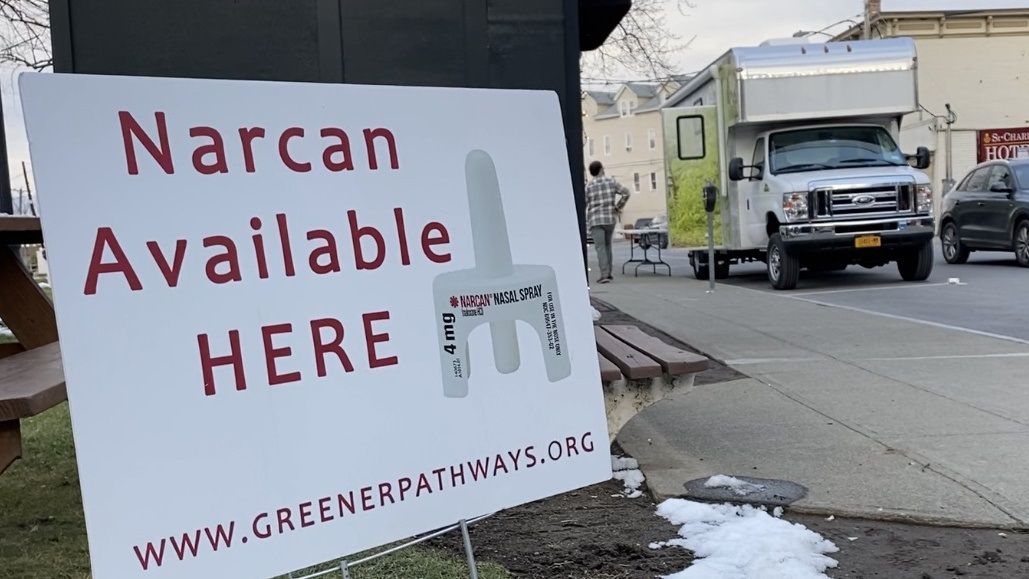Parked in downtown Hudson for a few hours Wednesday afternoon, the mobile team at the Columbia-Greene Counties Greener Pathways program aimed to educate as many people as possible about the resources available to anyone who may be battling addiction.
“We are kind of a grassroots organization that works with people wherever they are at in their recovery,” said Daniel Ward, the organization’s transportation coordinator. “We have everything from transportation assistance to peer advocacy to a mobile clinician.”
Robert Hoyts, a peer advocate at Greener Pathways, says the mobile outreach van was sent out into the community because several non-fatal opioid overdoses were reported in Columbia County over the previous 24 hours.
“It’s beneficial because we can react in real time,” Hoyt said. “As soon as we are notified and alerted of overdoses, we can be in the community, in the area, within the following morning.”
Ward says addiction is a problem that continues to plague the community, even though it’s been overshadowed by the coronavirus pandemic.
“It’s become a little bit more prevalent with COVID,” Ward said. “A lot of people are out of work, they are struggling with bills and family and all kinds of issues that just exist on an everyday basis, but now with losing your jobs and all of the stressors, people are resorting to substance use.”
In addition to connecting people with treatment options and sometimes providing on-site care, the mobile outreach team offers naloxone kits and training to anyone that's interested.
“It saves lives,” Hoyt said. “This keeps people alive so that they can eventually, when they are ready, get into treatment and get into recovery. We have a saying, ‘you can’t get recovery if you are dead.’”
With the opioid epidemic still putting lives at risk, Ward says their work is as important as ever.
“I just think people need to get over this stigma that comes with drugs and drug use, and realize that everybody has a tough time sometime and needs a hand,” Ward said.
